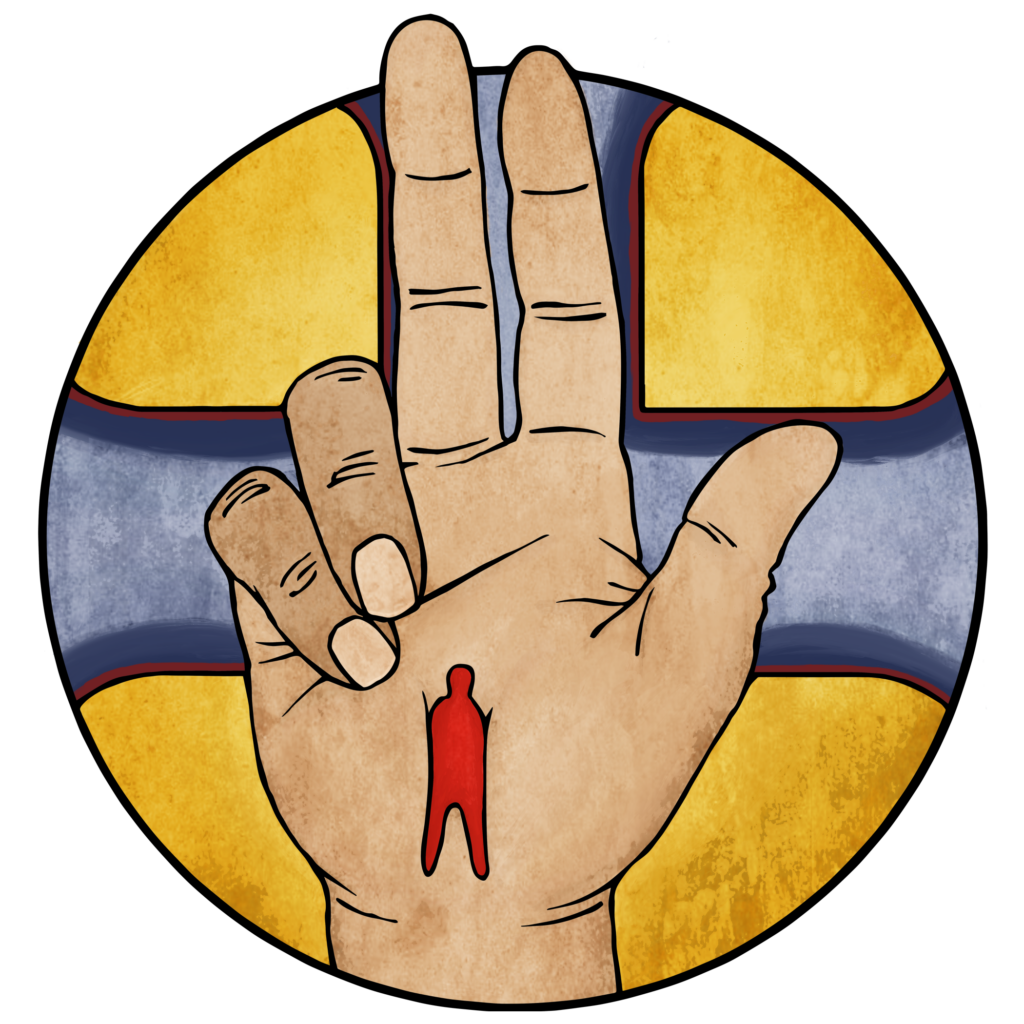July 30, 2024
Today’s Reading: Ephesians 3:14-21
Daily Lectionary: 1 Samuel 15:10-35; Acts 24:24-25:12
Now to him who is able to do far more abundantly than all that we ask or think, according to the power at work within us, to him be glory in the church and in Christ Jesus throughout all generations, forever and ever. Amen. (Ephesians 3:20–21)
In the Name + of Jesus. Amen. Are your prayers big? Jesus teaches us to ask (Matthew 7:7-8; 21:22), so pray! Ask! Go big! We probably think our prayers are big. We pray for our loved ones who are sick and need healing. We pray for miracles, like when a dear one has cancer or is near death after a tragic accident. We pray that God would bring peace where there is war. Those are big prayers! But even the smaller ones can tend to seem big at the time, like asking God to make things work out with my crush or to get into the college I’ve dreamed about. But are any of these things really that big? I don’t mean to minimize our requests or discourage praying for any of those things. Jesus says to ask, so ask! Ask big!
In Ephesians 3, St. Paul prays for the spiritual well-being of the Ephesians. He had just rejoiced in the mystery of the Gospel, namely that “the Gentiles are fellow heirs, members of the same body, and partakers of the promise in Christ Jesus through the gospel” (3:6). That’s BIG, bigger than what most Jews could think or ask. When some people brought Jesus a paralytic for healing, Jesus first forgave his sins (Matthew 9:2). A paralytic getting up and walking is big, but isn’t the forgiveness of sins even bigger?
Jesus prayed in the garden of Gethsemane: “My Father, if it be possible, let this cup pass from me; nevertheless, not as I will, but as you will” (Matthew 26:39). That’s a BIG prayer. It’s one that you and I pray often, just as Jesus taught us. Thy will be done! It’s a hard prayer to pray when we want that loved one healed. But, just as Paul teaches the Ephesians, God “is able to do far more abundantly than all that we ask or think” (3:20). God has indeed done the biggest thing of all. In Christ, God has saved you from eternal death by His suffering and death on the cross. That’s God’s good and gracious will for you and certainly bigger than anything we could ask or think.
Paul prays that the Ephesians would get just how BIG God’s saving love is. It seems rather small that Christ dwells in your heart through faith, but in Him, you are filled with the fullness of God. By His Spirit, you experience the breadth, length, height, and depth of God’s love for you in Christ. Rooted and grounded in THAT love, with the power of His Spirit at work in you, everything else appears pretty small. Sure, you still pray for your loved one to be healed. Of course you do! But faith clings to the promise of eternal life in Christ. Faith clings to Jesus, even when our prayers aren’t answered in the way we had hoped. Faith rejoices that even death itself is undone in the One who loves you so much that He died and rose again for you.
The last part of Luther’s explanation of the Third Petition of the Lord’s Prayer in the Small Catechism reads: “God’s will is done when He strengthens and keeps us firm in his Word and faith until we die.” That echoes Paul’s prayer for the Ephesians and for you and me. To God be glory in the church and in Christ Jesus throughout all generations, forever and ever. Amen. In the Name + of Jesus. Amen.
Hear us, Father, when we pray, Through Your Son and in Your Spirit. By Your Spirit’s Word convey All that we through Christ inherit, That as baptized heirs we may Truly pray. (LSB 773:1)
-Rev. Joel Fritsche, director of Vicarage and Deaconess Internships and assistant professor of Exegetical Theology at Concordia Seminary, St. Louis
Audio Reflections Speaker: Pastor Jonathan Lackey is the pastor at Grace Lutheran Church, Vine Grove, Ky.
The Lutheran Confessions play a vital role in the church—both centuries ago, and today. But, do they apply to the daily life of a layperson? Pastor Andy Wright offers a resounding “yes” in his book, Faithfully Formed. He quotes, summarizes, and synthesizes key teachings from the Confessions, revealing their relevance in the daily lives of ordinary people.

